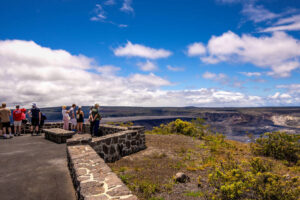Palm Springs capped short-term rentals. Now some home prices are in free-fall
Two years ago, YouTube star Luan Palomera paid $1.5 million for a chic vacation home in Palm Springs.
Today, he’d be lucky to get $1 million for it.
ADVERTISING
As L.A. continues its crackdown on Airbnb, city officials can turn toward the desert for an example — perhaps a cautionary tale — of the potential side effects of curbing the short-term rental market.
In Palm Springs, a cap on short-term rentals in specific high-demand neighborhoods has all but frozen the market in those communities.
Sales are down. Homes languish on the market for months. And investors who bought up Palm Springs properties during the COVID-19 pandemic are facing hundreds of thousands of dollars in losses.
Airbnb has changed the face of the rental market since it launched in 2008, making it much easier for homeowners to rent out spare rooms or entire houses. But in the years since, cities have started to notice the downside of so much housing stock turning into short-term rentals.
Activists argue Airbnbs remove affordable housing from the market. Residents complain that the influx of tourists leads to loud, late-night parties and generally takes away from a place’s neighborly ambience. Disputes between hosts and renters lead to movie-level drama and months-long courtroom clashes.
As a result, some cities are limiting short-term rentals, and each one seemingly has a different strategy. New York City allows rentals only if the host remains present in the unit for the entire stay. L.A. adopted the Home Sharing Ordinance, a regulatory framework that requires a license that allows hosts to use only their primary residence — where they live at least six months of the year — to rent out for a maximum of 120 days per calendar year.
As a result, some cities are limiting short-term rentals, and each one seemingly has a different strategy. New York City allows rentals only if the host remains present in the unit for the entire stay. L.A. adopted the Home Sharing Ordinance, a regulatory framework that requires a license that allows hosts to use only their primary residence — where they live at least six months of the year — to rent out for a maximum of 120 days per calendar year.
Palm Springs, a city dependent on tourism, tried something new in an attempt to preserve its local identity in the era of Airbnb.
In 2022, the City Council adopted an ordinance that capped the number of rental certificates in any given neighborhood to 20% of the homes there.
Michael Slate, a local real estate agent, said most agents don’t even bother hosting open houses for listings in capped neighborhoods.
“No one shows up,” he said. “Buyers are aware of the cap, and properties on the market in those neighborhoods don’t get a lot of activity.”
Slate has one client who paid $1.1 million for a home and spent $300,000 on renovations. Then the cap kicked in. Now, she’s not sure she’d be able to sell it for $1 million.
The good news is that there are plenty of great deals to be found for those in the market, as long as you’re only looking to live there yourself. In the Gene Autry neighborhood, one listing warns potential buyers: “Property can not be short term rented as there is a permit cap.”





